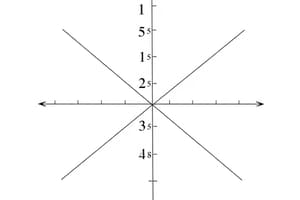Podcast
Questions and Answers
What are whole numbers?
What are whole numbers?
- All whole numbers are rational numbers (correct)
- All whole numbers are integers (correct)
- Whole numbers include fractions
- Whole numbers include negative numbers
What defines rational numbers?
What defines rational numbers?
- They always have terminating decimals. (correct)
- They cannot be written as fractions.
- They can be expressed as a fraction a/b. (correct)
- They include irrational numbers.
What are irrational numbers?
What are irrational numbers?
Numbers that cannot be made into a simple fraction; they have a decimal that keeps going.
What are integers?
What are integers?
What are the characteristics of the numbers 0, 47, 24/8, 56/1, 279?
What are the characteristics of the numbers 0, 47, 24/8, 56/1, 279?
What type of numbers are 2.454554555....., -3.422422, √6, -√10, π?
What type of numbers are 2.454554555....., -3.422422, √6, -√10, π?
What type of numbers are -4, -√100, -12, -81/9, -√25?
What type of numbers are -4, -√100, -12, -81/9, -√25?
What type of numbers are 2.45, -0.6, 24 1/2, 3/4, -7.5, repeating decimals?
What type of numbers are 2.45, -0.6, 24 1/2, 3/4, -7.5, repeating decimals?
Every number is a real number if it is not invisible.
Every number is a real number if it is not invisible.
All integers are rational numbers.
All integers are rational numbers.
All negative numbers are integers.
All negative numbers are integers.
3.87655 is a rational number.
3.87655 is a rational number.
√7 is a real number.
√7 is a real number.
All fractions are integers.
All fractions are integers.
Flashcards are hidden until you start studying
Study Notes
Types of Numbers
- Whole numbers and integers are synonymous; both encompass all positive and negative whole numbers.
- Rational numbers include integers and can be expressed as fractions (a/b) where a and b are integers, with b not equal to zero.
- All rational numbers may have terminating or repeating decimal representations.
Rational Numbers Characteristics
- Can be represented as fractions.
- Terminating decimals (e.g., 0.5) and repeating decimals (e.g., 0.333...) are rational forms.
Irrational Numbers
- Defined as numbers that cannot be expressed as simple fractions.
- Exhibit non-terminating, non-repeating decimal patterns, such as π (pi) or √2.
Integer Definition
- Comprised of positive whole numbers, negative whole numbers, and zero.
Examples of Number Types
- Whole numbers include 0, 47, and 279; they can also include fractions like 24/8 and whole numerators like 56/1.
- Examples of irrational numbers include repeating decimals, roots of non-perfect squares (e.g., √6), and π.
- Integer examples comprise -4, -12, and -√100, demonstrating they can be negative or zero.
- Rational number examples involve decimals or fractions like 2.45, -0.6, and 24 1/2.
True or False Statements
- Every number is a real number if it is not imaginary. (True)
- All integers qualify as rational numbers. (True)
- Not all negative numbers are classified as integers. (False)
- 3.87655 is considered a rational number due to its decimal form. (True)
- √7 is categorized as a real number because it is not imaginary. (True)
- Not all fractions can be classified as integers; they are often rational. (False)
Studying That Suits You
Use AI to generate personalized quizzes and flashcards to suit your learning preferences.




